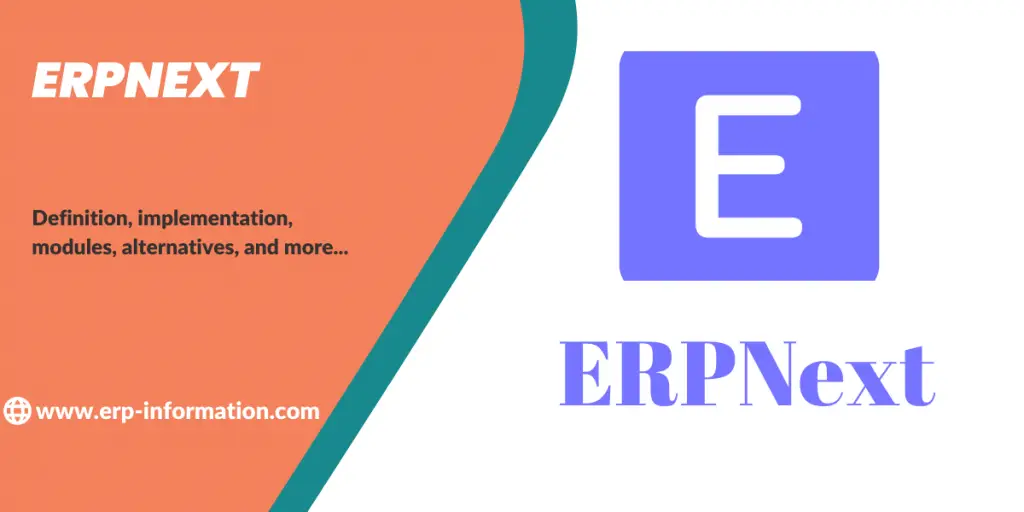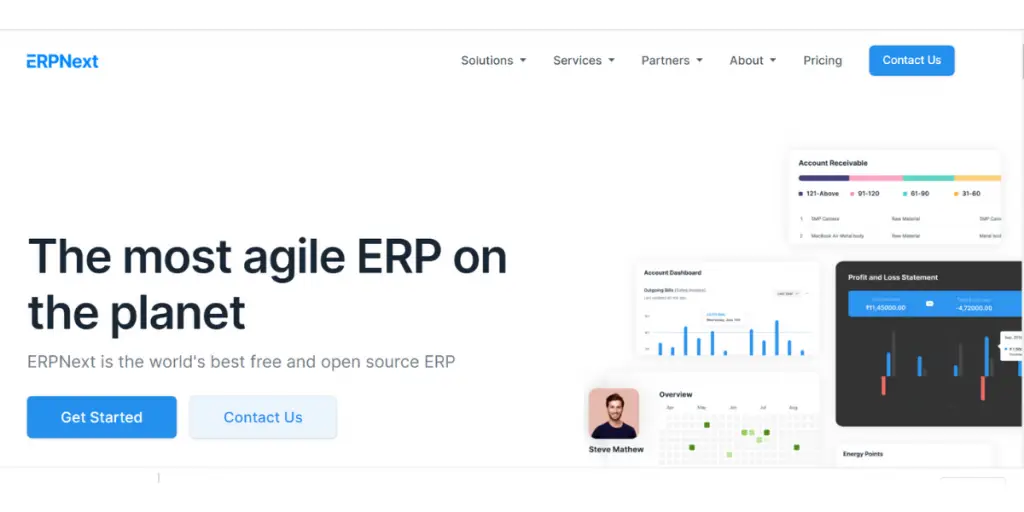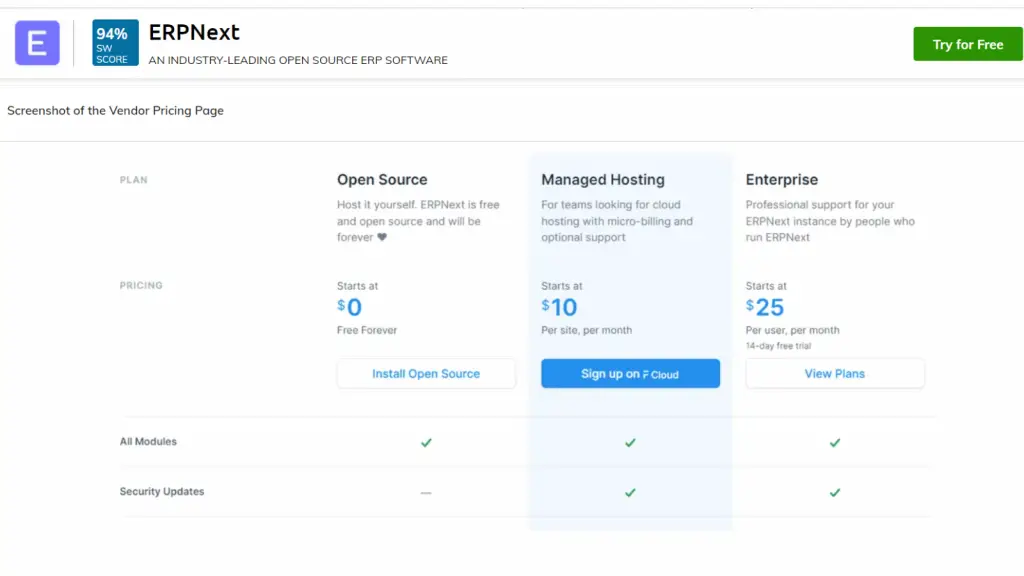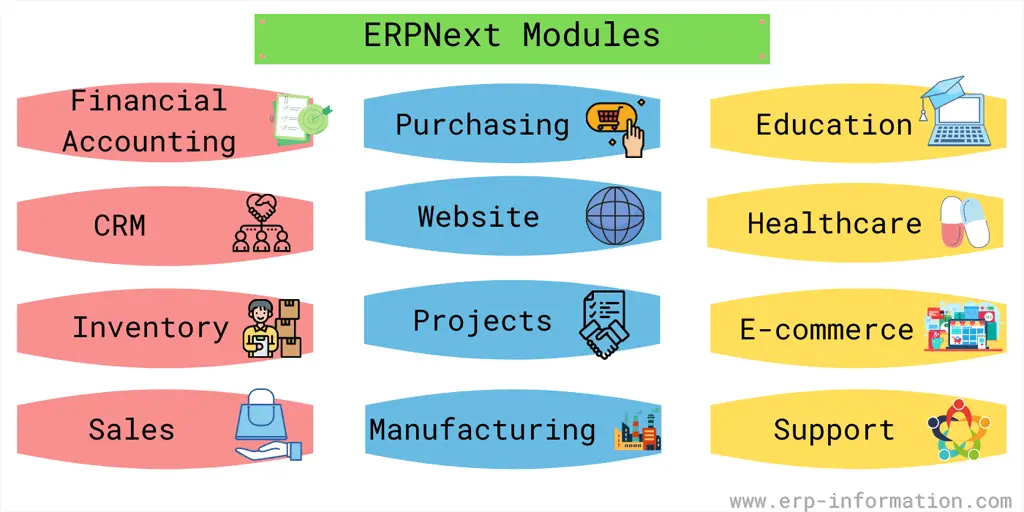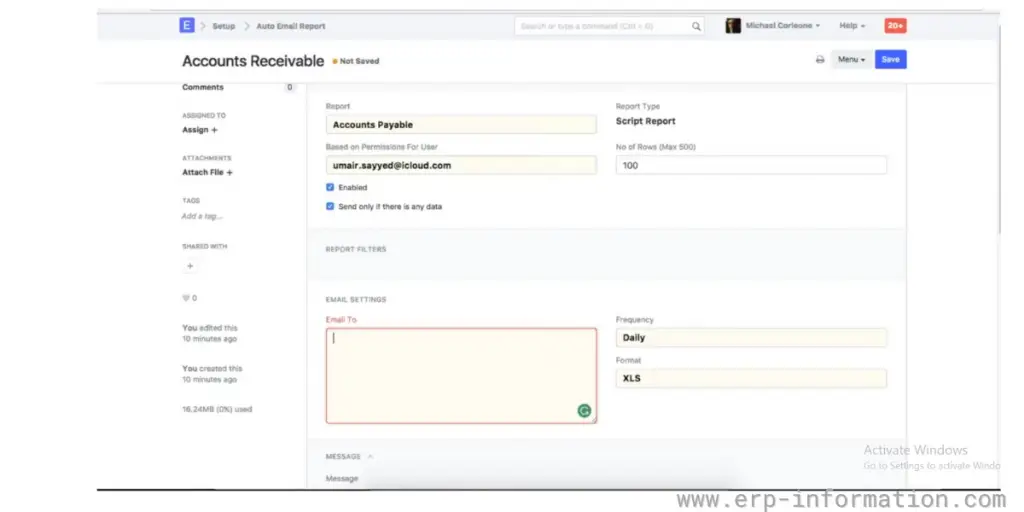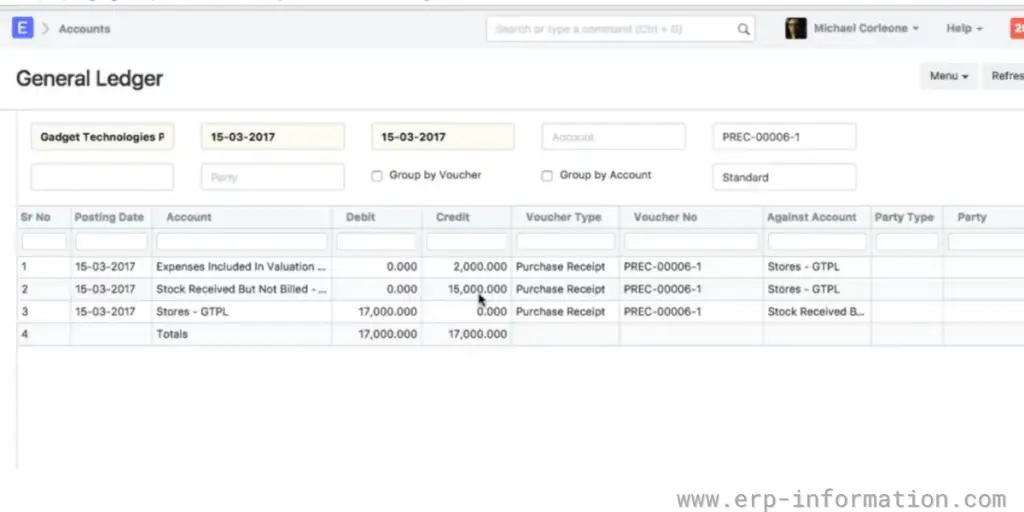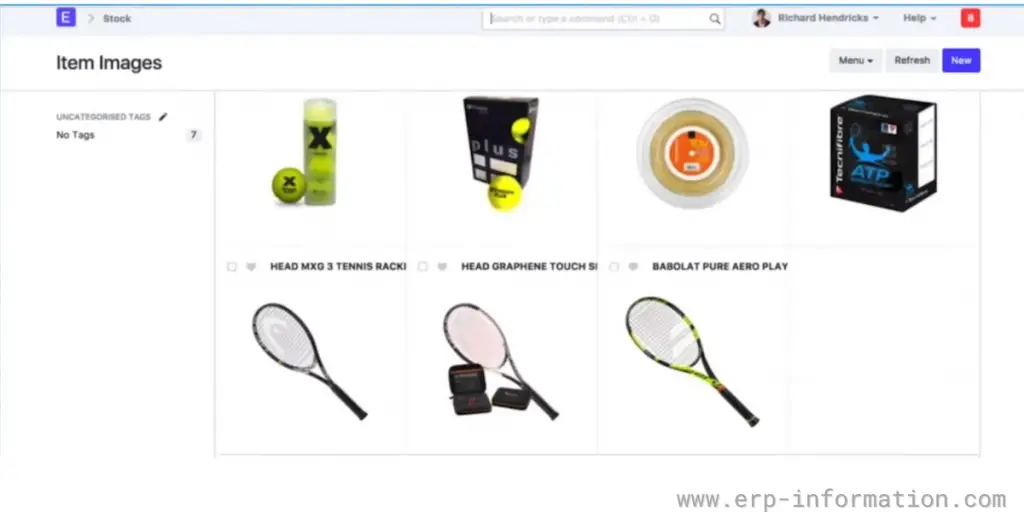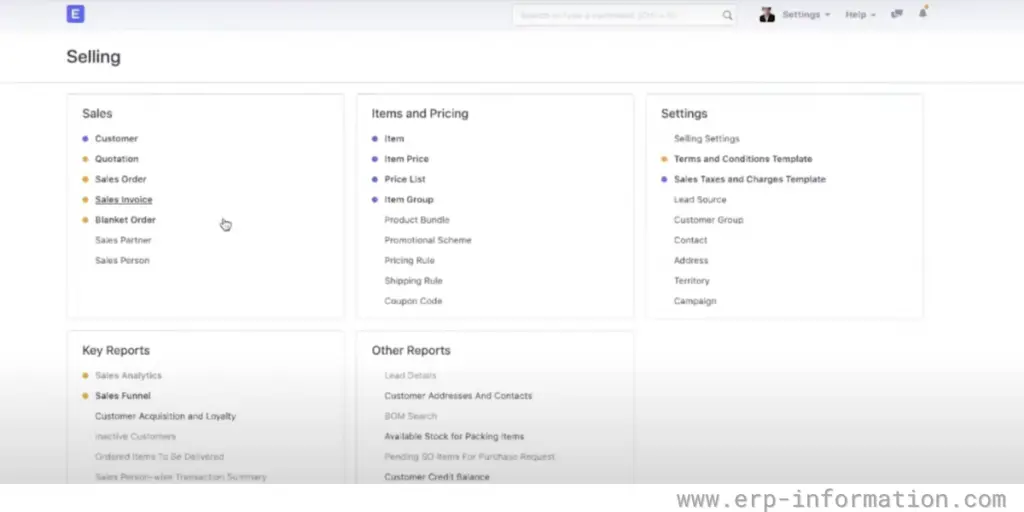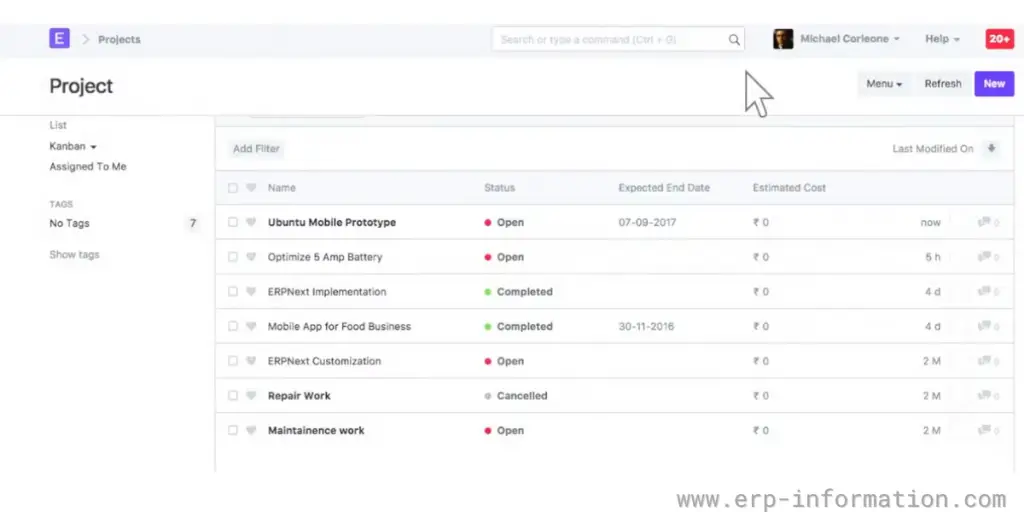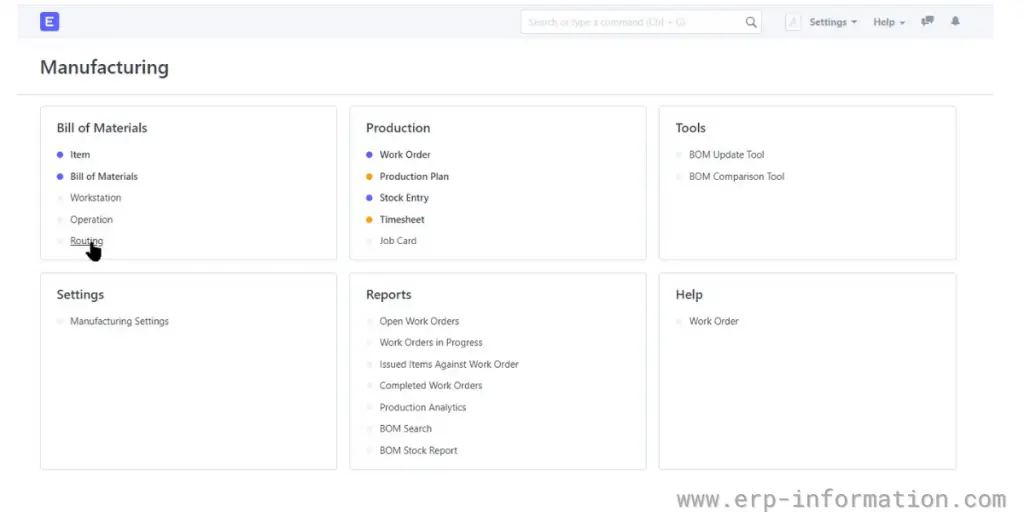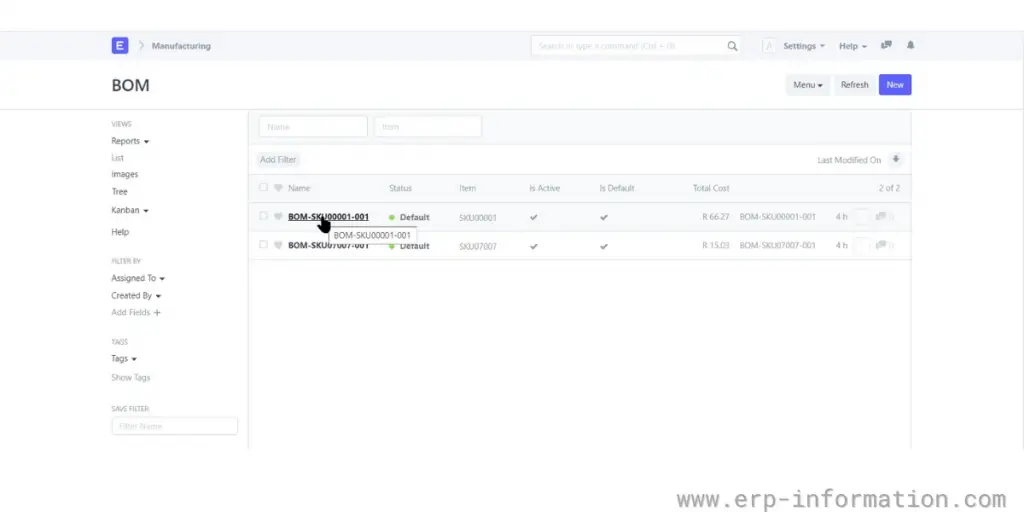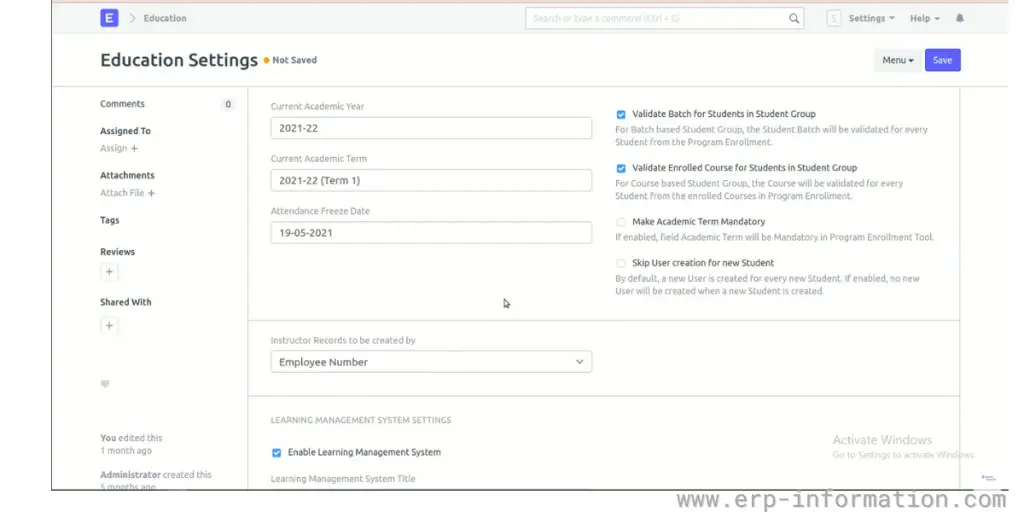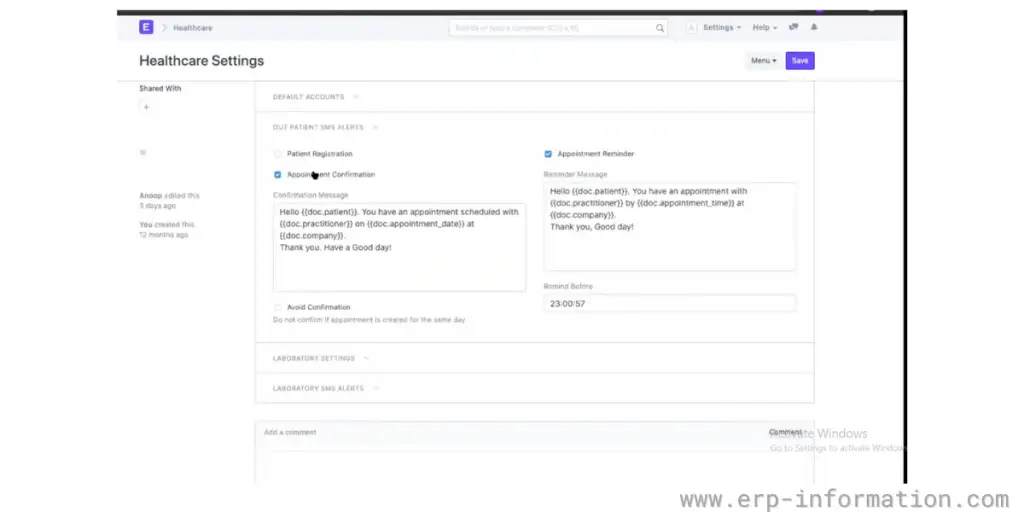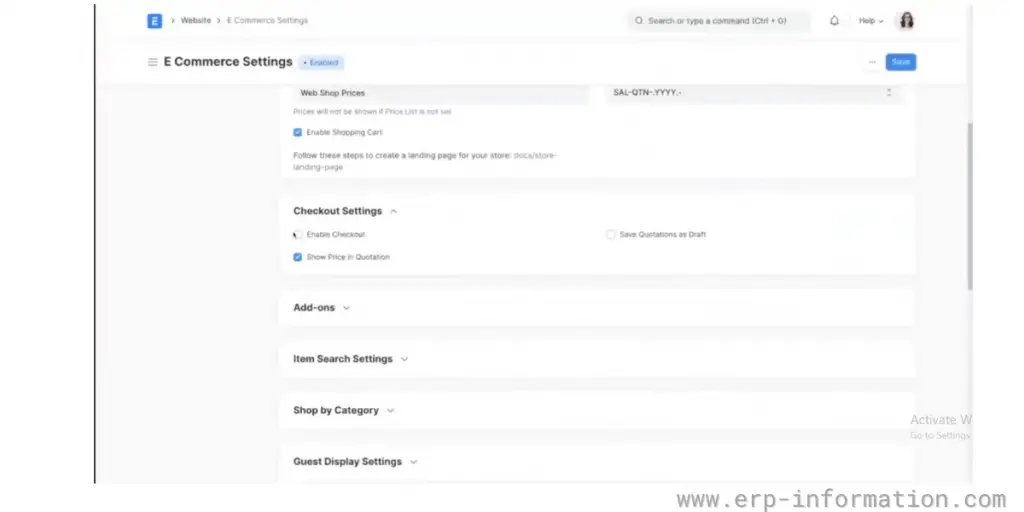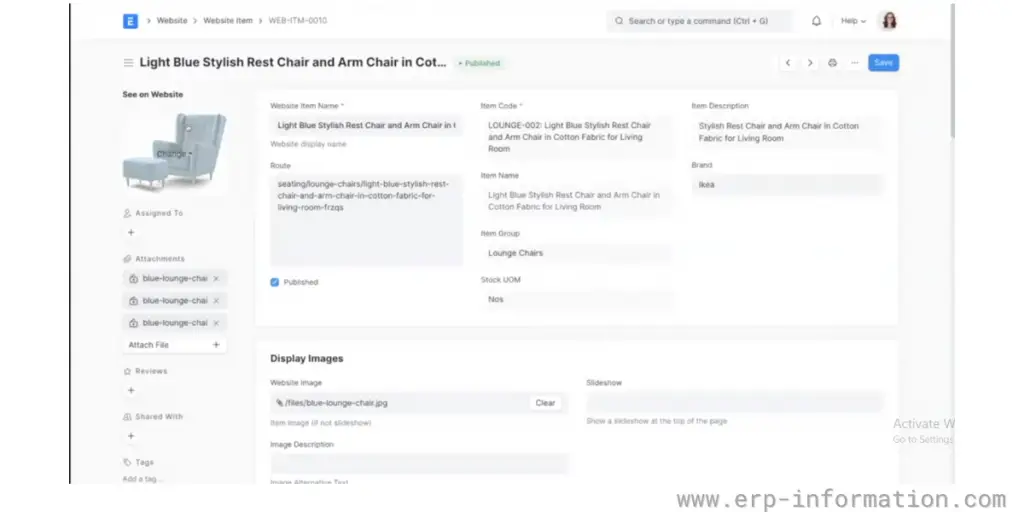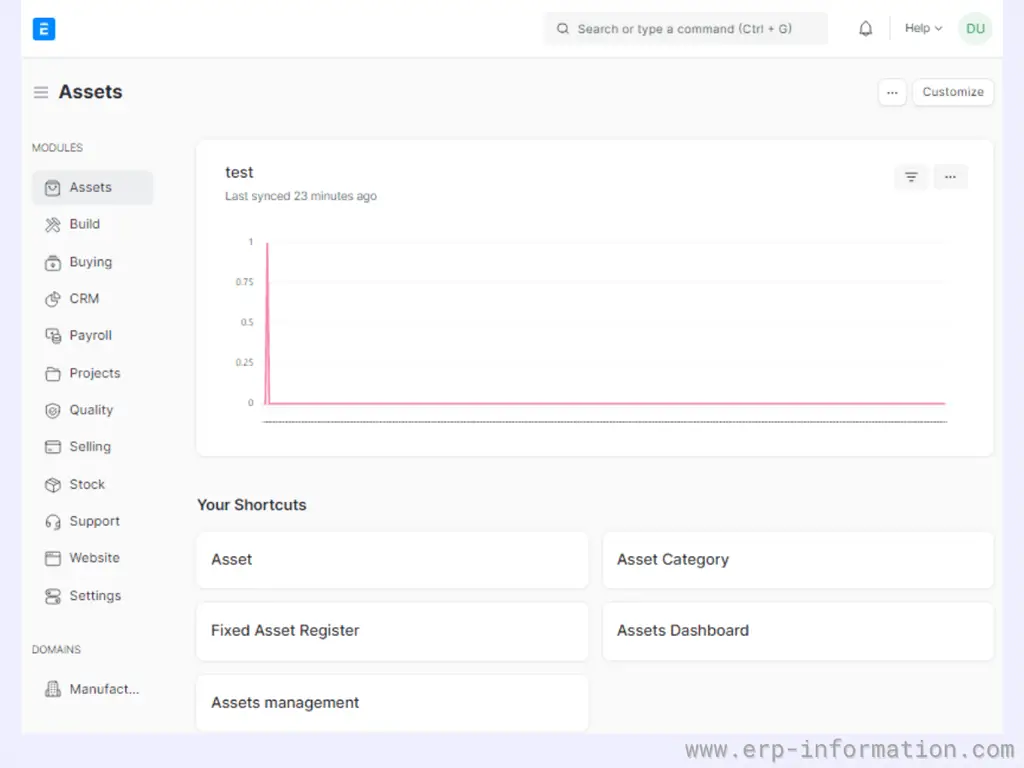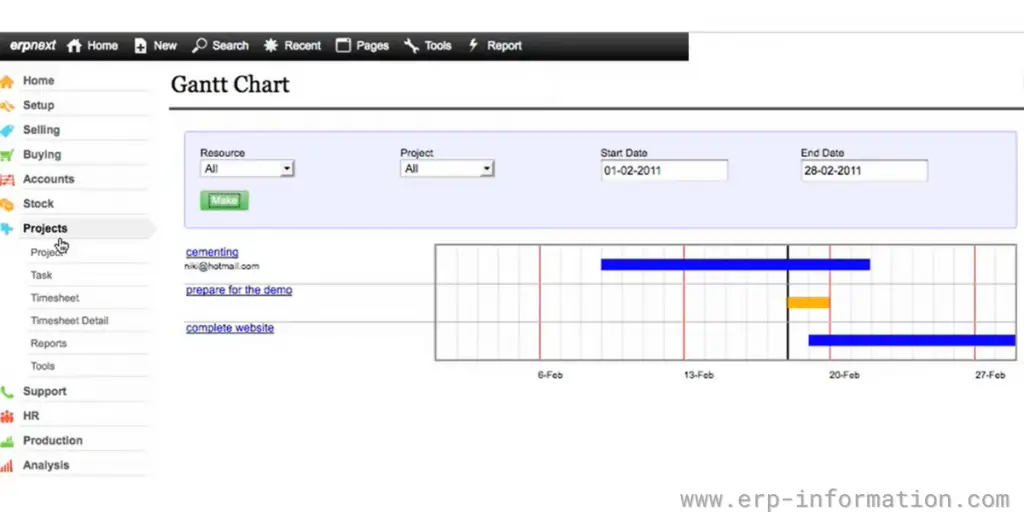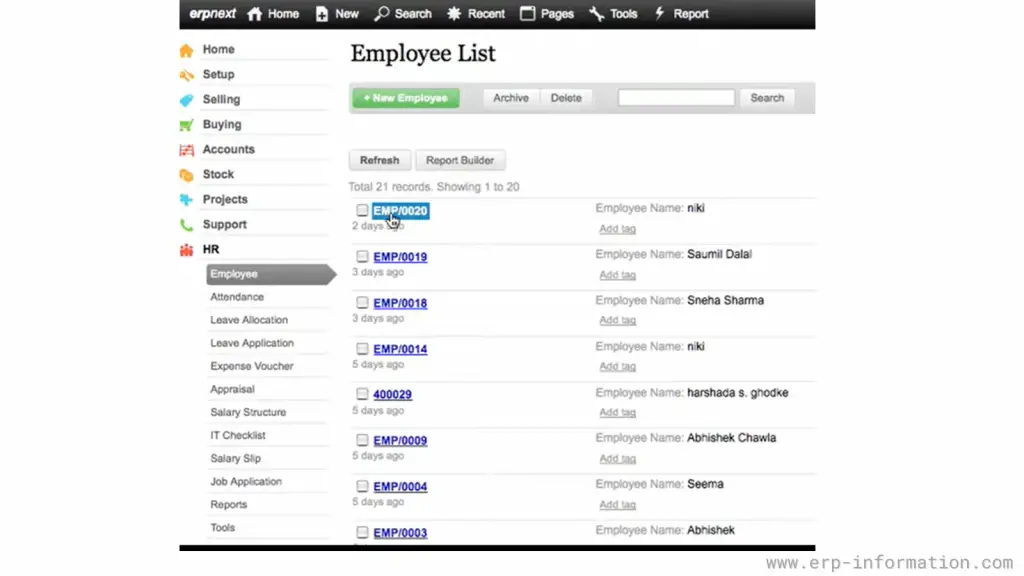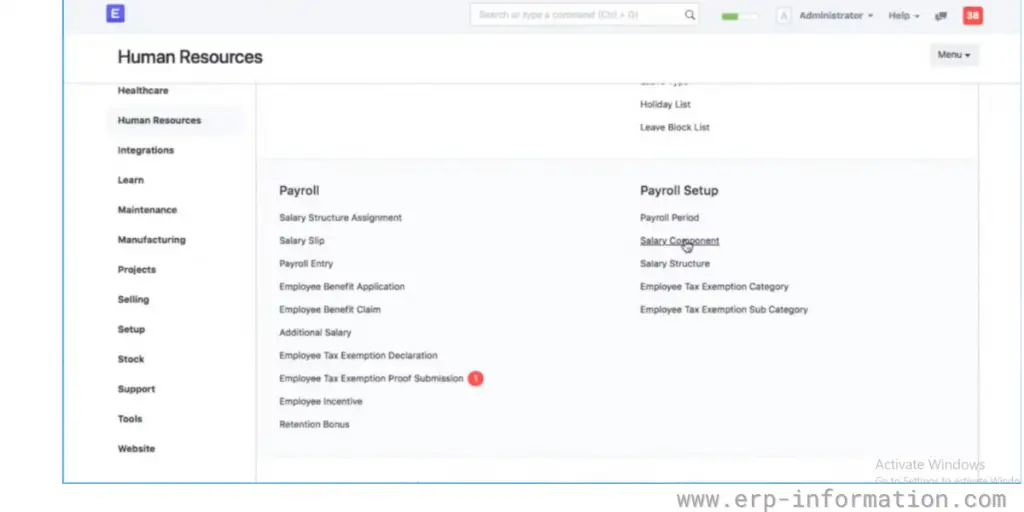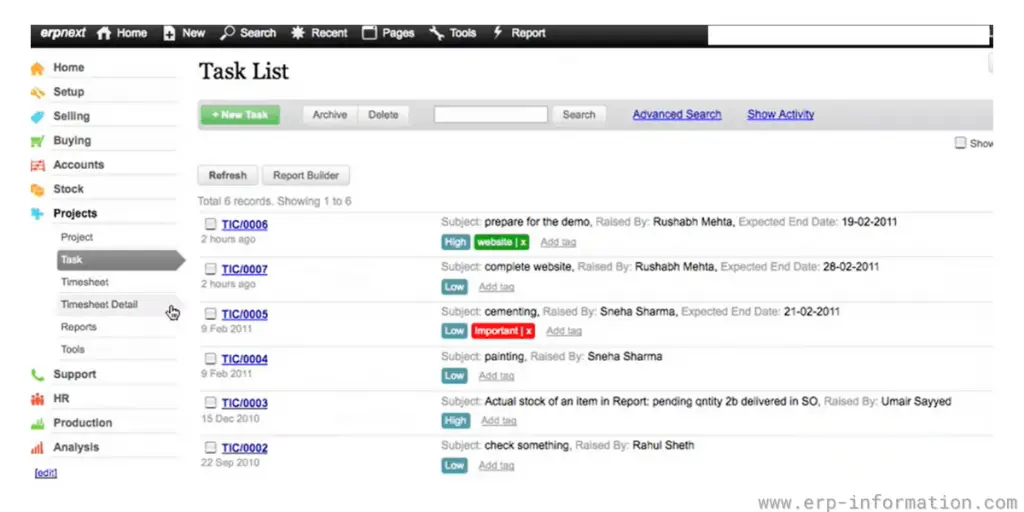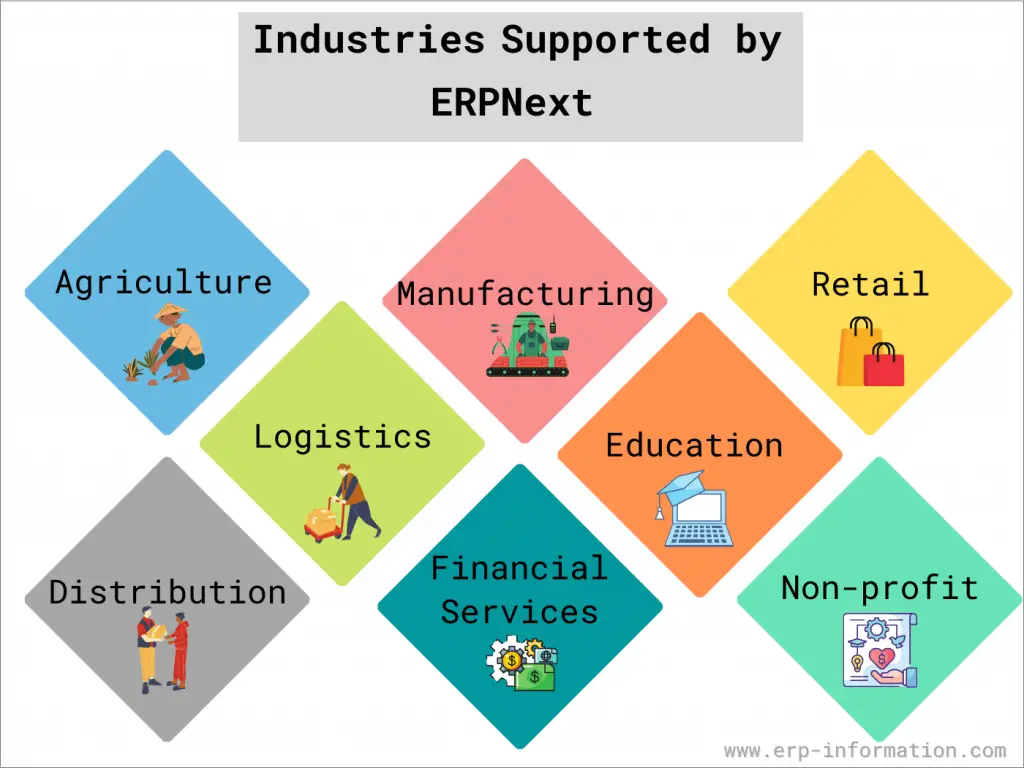ERPNext is a popular open-source ERP system that has been around for a few years. It is used by many businesses, both small and large.
This blog post will look at pricing, modules, pros and cons of ERPNext, and some alternatives to consider.
Click here for similar kinds of Open Source ERP Software
New version: ERPNext 15
What is ERPNext?
It is one of the best open-source ERP software you have ever seen. It is free and open-source software that you can manage your business.
It is designed as an Enterprise Resource Planning system, a software suite that integrates and manages all business areas.
It is available on the web, mobile devices, and desktop applications. It has a robust set of features that businesses of all sizes find helpful.
The programming languages used for developing it are Python and JavaScript. Source code is licensed under GNU, General Public License version 3.
Other Information
- It is available in 70 languages. Some of them are Arabic, German, English, French, Hindi, Indonesian, Spanish, and Chinese (Simplified)
- It offers a 30% discount for the education sector.
ERPNext Pricing
It offers three types of pricing (as of writing this article, for more updates, refer to its official website)
| Open source: | This is on-premise and self-hosted. So it is fully free, and all modules are available. |
| Managed Hosting | It starts at $10 per site per month. |
| Enterprise | Its costs $25 per user per month. |
Implementation
It is designed to implement the software by itself without any help quickly. Still, it provides videos and other supplements to help the customer implement.
Companies with paid login or cloud hosting will get one-to-one support configuring the system.
Supports and Services
- This open source ERP provides email chat and screen-sharing support for self-hosted customers.
- For cloud-hosted customers, it provides email, bug fixing support, one to one support sessions with the support team.
- Customers can also ask questions on ERPNext open-source community forum.
ERPNext Modules
Financial accounting
This module allows the user to have consolidated financials, transactions within the company, and bank statement uploading abilities.
CRM
This module provides payroll, leave management and employee lifecycle.
Inventory
This is for managing stock and warehouse management.
Sales
Manages the sales activities like quotations, sales orders, and customer interactions.
Purchasing
Purchasing is a cash outflow for the company’s stock and assets. ERP is useful for making good decisions in Buying required materials and electronic goods without damage and waste of materials.
Projects
Project management keeps the record of cost, time usage, states of the assigned work, and returns.
Manufacturing
The manufacturing module manages the Bill of materials, production plan, work order, stock entry, and time sheet.
Education
Education module is upgraded for the current requirement of education should reach every corner of the world. Moreover, it has many options for students and employees, which many educational institutions have used with high competition from other institutions.
Healthcare
This module is a gift for the Healthcare sector. Managing the Patient appointments, history records, schedule of physicians, prescriptions, and many more..
E-commerce
Products are sold with the help of an e-commerce module. With this marketplace, you can publish and upgrade the items, product listing can also be done groupwise, shopping cart, and different category options are also available.
Website
A website is a good platform for public interactions. This module helps to create a webpage, write the blog, publish the product details, and allow to buy the same.
Some Screenshots of Modules
Projects Gantt Chart
HR Employee List
Project Task List
ERPNext pros and cons
Pros
The top advantages for your enterprise include,
- It has a practical and easy-to-use interface
- It is freely available. No license charges
- You can implement this software by yourself
- With its comprehensive features, it saves your time and money
- Its reporting system is straightforward
- It provides a flexible, centralized platform for your business
Cons
- This ERP software is not suitable for large industries
- It is new to the market, so companies did not have much trust in it
- For customized version upgrade issues, are there
- Documentation is not so good
What industries does it support?
It supports the following industries by providing specific modules for them. Those industries are
- Agriculture
- Manufacturing
- Retail
- Distribution
- logistics
- Financial services
- Education
- Healthcare
- Non-profit
Alternatives
Customers
Some of the companies using it are
- Union Global
- Office one
- Neolync
- eso electronic
- V3 Technologies
- ElasticRun
Conclusion
ERPNext software is a viable alternative for businesses looking for an affordable, modular, reliable ERP system. It has been tried and tested over the years and has a growing community of users who can provide support if needed.
However, it has some downsides that you should consider before deciding.
When deciding which system is right for your business, you should consider the size of your business, your budget, the complexity of your business, and the amount of support you require.
You can find more open-source ERP software similar to ERPNext.
References:
